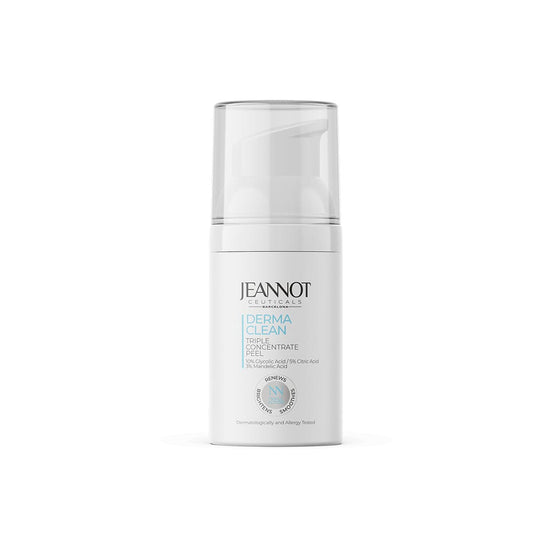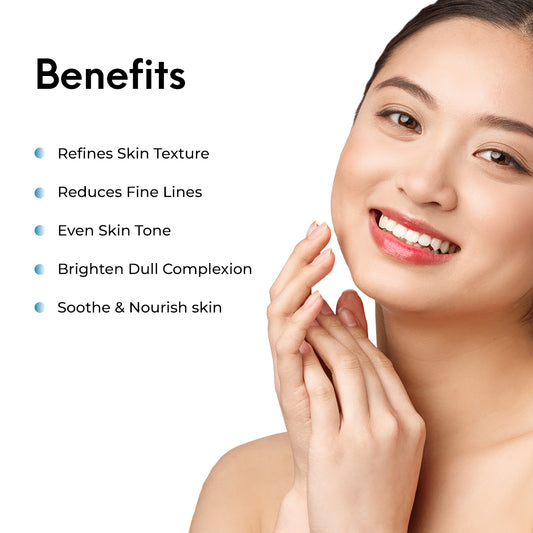Face Exfoliator
Why You Need a Face Exfoliator in Your Skincare Routine?
If your skincare routine consists of just a basic cleanser, and moisturizer then you may be missing an important step-exfoliation! Your skin accumulates pollutants, dirt and dead skin over time. All of this adds up to a dull, rough and tired-looking complexion. This is where a good face exfoliator comes in!
A good face exfoliator will eliminate the dead skin, improve the texture of your skin, help unclog the clogged pores, and ultimately restore the glow of your skin. Exfoliating peel for face will allow your other skin care products appropriate; serums and toners and moisturizers will absorb better and your entire skin care program will be more effective. Including a face exfoliator in your skin care routine will help reveal a more fresh, clean, and healthier complexion, whether you have oily, dry or combination skin.
There are plenty of wonderful DIY scrubs available, but it is important to offer a different kind of exfoliation. Chemical exfoliators are much improved over physical exfoliators. Physical scrubs can result in microtears and irritation. Check out our gentle yet effective exfoliating feel suitable for every skin type and delivering visible results, safely.
Meet the Game-Changer: Triple Concentrate Peel
Finding the right face exfoliator can feel like walking a tightrope, if it’s too harsh and your skin gets angry; too gentle and it doesn’t do much. That’s where the Triple Concentrate Peel comes in. It’s been designed to give you the best of both worlds: real results without the sting.
This clever formula blends three powerhouse acids that each play a role in renewing your skin without overdoing it.
What’s inside:
-
Critic Acid: Loosens and lifts dead skin cells while adding a hit of hydration.
-
Glycolic Acid: Penetrates deeper to smooth rough patches and refine pores.
-
Mandelic Acid: Targets excess oil and breakouts, making it a go-to for congested or acne-prone skin.
You don’t need to scrub or tug, just apply the peel with a flat brush, let it work its magic, and rinse. Use it 2–3 times a week and you’ll start noticing skin that feels smoother, looks clearer, and radiates that healthy glow.
Which Face Exfoliator Is Right for Your Skin Type?
The Best Exfoliator For All Skin Types
The Triple Concentrate peel is a unique formula that suits all skin types. This unique peel not only revitalizes your skin but also helps in cellular renewal and boosts collagen production. Formulated with the enriching properties of Hamamelis and White Mushroom, this concentrate peel delivers a luminous complexion, diminished fine lines, and an even skin tone.
If you’ve got Oily Skin and struggle with issues like shine, congestion, and regular breakouts then a chemical exfoliant with salicylic acid can help that dives deep into pores and clears things out without triggering more oil. However, steer clear of rough scrubs that can irritate and overcompensate. Our Triple Concentrate Peel is a great exfoliator for Oily Skin as it clears, calms, and balances the skin without any damage.
If you regularly experience tightness, flakiness, and a lack of glow even after moisturizing, you should try an exfoliator for Dry Skin that hydrates while it gently exfoliates. Mandelic acid is ideal, it's effective, but kind to dry skin. But always follow up with a nourishing cream or facial oil to seal in moisture.
And if your skin is oily here, dry there then it’s a balancing act. What you need is a formula like the Triple Concentrate Peel that is versatile enough to handle multiple zones at once. You want something that won’t dry out your cheeks while still keeping your T-zone clear. It is always advisable to start slow use once or twice a week and increase only if your skin loves it.
How to Use a Face Exfoliator the Right Way?
Even the best face exfoliator can cause issues if you’re not using it right. Follow these steps to get all the glow, none of the irritation:
-
Start with a gentle cleanser to prep your skin.
-
Apply a thin layer of exfoliating peel on damp skin.
-
If it’s a scrub, massage gently in circular motions. If it’s a peel like ours, let it sit as per directions.
-
Rinse with lukewarm water.
-
Pat your skin dry, then apply a calming toner or moisturizer.
-
If you’re heading outside, don’t skip SPF as freshly exfoliated skin is extra sun-sensitive.
Pro Tip: Twice a week is just right for most skin types. Exfoliating too often can backfire.
Looking for the Best Face Exfoliator? You Just Found It.
If you want an exfoliator that’s effective but still gentle, Triple Concentrate Peel ticks all the boxes. It’s made to work across skin types, refine texture, reduce the look of pores, and bring back your skin’s natural radiance.
Think of it as your shortcut to glow. One product. Big results. No irritation.
Try the Triple Concentrate Peel and let your skin do the talking.
Frequently Asked Questions (FAQs)
1. Is it safe to use chemical peels at home?
Yes, If done correctly chemical peels from Jeannot Ceuticals are very effective and safe to use at home.
2. How many times a week can I use the Triple Concentrate Peel?
You can include this indulgent ritual into your routine once every 2-3 weeks in the beginning and then slowly increase the usage if your skin is able to tolerate it well.
3. Will I experience any discomfort while using the Triple Concentrate Peel?
No, you might experience a mild tingling sensation in the beginning but the product does not cause any discomfort.
4. Will I see immediate results?
The Triple Concentrate Peel gently exfoliates your skin to leave smooth skin without textures and you can see these results within a few uses itself.
5. Will I get any side effects if I leave it on for too long?
It is recommended to apply a thin layer of the product for 6 to 8 minutes and then wash it off. As peels are made with active ingredients it is important to follow the instructions to get maximum benefits.


